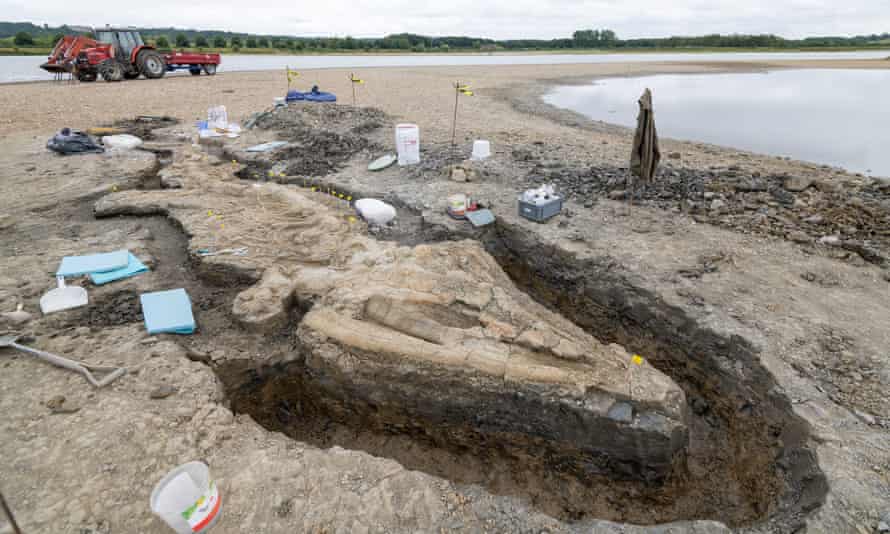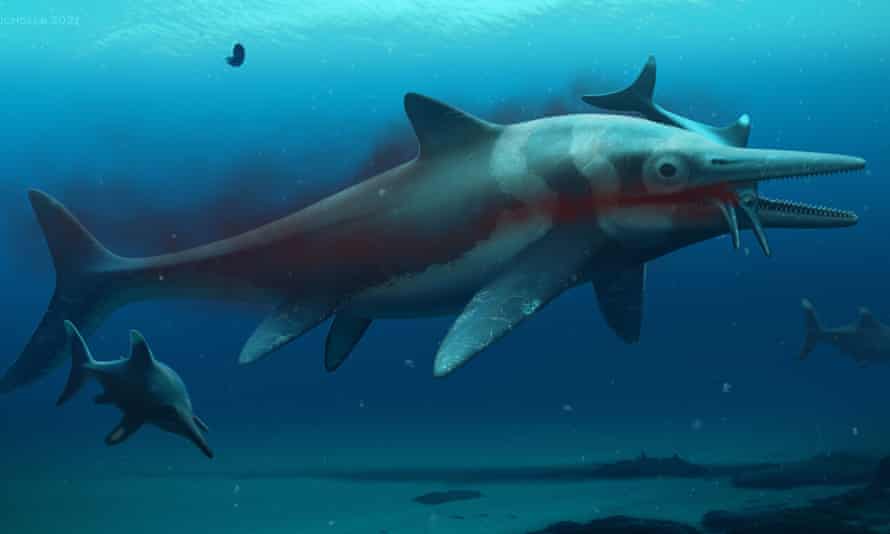A gigantic prehistoric “sea dragon” discovered in the Midlands has been described as one of the greatest finds in the history of British palaeontology.
The ichthyosaur, which is about 180m years old with a skeleton measuring about 10 metres in length and a skull weighing about a tonne, is the largest and most complete fossil of its kind ever found in the UK. Joe Davis of the Leicestershire and Rutland Wildlife Trust discovered it during the routine draining of a lagoon island at the Rutland Water reservoir in February 2021.
The first ichthyosaurs, which are called sea dragons because they tend to have very large teeth and eyes, were discovered by the fossil hunter and palaeontologist Mary Anning in the early 19th century.

Dean Lomax, a palaeontologist who has studied the species, said: “Despite the many ichthyosaur fossils found in Britain, it is remarkable to think that the Rutland ichthyosaur is the largest skeleton ever found in the UK. It is a truly unprecedented discovery and one of the greatest finds in British palaeontological history.”
Ichthyosaurs, which were marine reptiles, first appeared about 250m years ago and went extinct 90m years ago. They varied in size from 1 to more than 25 metres in length and resembled dolphins in their general body shape.
The remains were dug out by a team of experts from around the UK in August and September.

Two incomplete and much smaller ichthyosaurs were found during the construction of Rutland Water in the 1970s, but the latest discovery is the first complete skeleton.
Mark Evans of the British Antarctic Survey, who has been studying the Jurassic fossil reptiles of Rutland and Leicestershire for more than 20 years, said that even from the first glimpse of the partially exposed fossil it was clear that it was the largest ichthyosaur discovered in the region.
“However, it was only after our exploratory dig that we realised that it was practically complete to the tip of the tail,” he said. “It’s a highly significant discovery both nationally and internationally but also of huge importance to the people of Rutland and the surrounding area.”
Nigel Larkin, a specialist palaeontological conservator, said: “It’s not often you are responsible for safely lifting a very important but very fragile fossil weighing that much. It is a responsibility, but I love a challenge. It was a very complex operation to uncover, record, and collect this important specimen safely.”
The excavation of the remains will feature on BBC Two’s Digging For Britain on Tuesday at 8pm.
